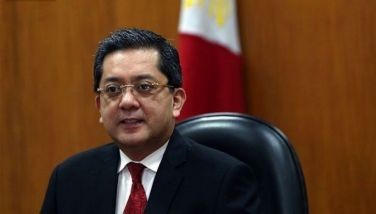CBCP disturbed by rising vigilantism
DAGUPAN CITY, Philippines – The Catholic Bishops’ Conference of the Philippines (CBCP) has commended law enforcers on their earnestness in enforcing the law, but expressed concern that vigilantism appears to be on the rise.
In a pastoral appeal to law enforcers issued yesterday, CBCP president and Lingayen-Dagupan Archbishop Socrates Villegas said the CBCP is disturbed by the increasing number of reports that suspected drug peddlers and users were shot supposedly because they resisted arrest.
The CBCP also issued guidelines to law enforcers to prevent abuse.
Foremost among the guidelines is that law enforcers can “shoot to kill” solely for legitimate self-defense or defense of others.
Villegas noted that law and jurisprudence have sufficiently spelled out the elements of self-defense and for purposes of Catholic morality, “it is necessary to emphasize that you, as law enforcers, can ‘shoot to kill’ only when there is unjust provocation; second, when there is a real, not only conjectural, threat to your life or to the lives and safety of others; and third, when there is due proportion between the threat posed and your own use of a firearm aimed at the threatening subject.”
The CBCP guidelines also said that “to kill a suspect outright, no matter how much surveillance work may have antecedently been done on the suspect, is not morally justified.”
Villegas explained that suspicion is never the moral equivalent of certainty, and punishment may be inflicted only on the ground of certainty.
When the arrest of a suspect is attempted and the suspect endeavors to escape, every attempt by non-lethal means should be made to stop the suspect from fleeing. If shot at, every attempt should be made to spare the fleeing suspect from death, unless the escape of the victim clearly and immediately puts others in harm’s way.
The CBCP also said that it is never morally permissible to receive reward money to kill another.
“When bounty-hunting takes the form of seeking out suspects of crime, killing them, then presenting proof of the death of the object of the hunt to the offeror of the reward, one is hardly any different from a mercenary, a gun-for-hire, no matter that the object of one’s manhunt should be a suspected offender,” Villegas said.
The CBCP pointed out that?it is also the moral duty of every Catholic and Christian to report all forms of vigilantism of which they have personal knowledge.
“For greater reason, it is a duty to keep away from any participation and any form of cooperation with vigilantes and vigilante movements,” Villegas said.
“The impunity with which offenders of the law carry on with their criminal activity also points out flaws in our criminal justice system but remembering that the community is as much a pillar of this system as are all other components, members of the community – Christians especially – should not be too quick to point accusing fingers at law-enforcers, prosecutors and judges.
“We must all ask ourselves whether or not by our silence, our indifference or worse, our acts, we may have contributed to the proliferation of crime and the increase in criminal activity,” he added.
Villegas further noted that bishops understand the difficulties that law enforcers face. “But not only civil society but also the Church counts on them for the flourishing of a society where all enjoy the blessings of a regime under laws that are just and institutions that are fair.”
The CBCP called on the prosecutors and judges to remain firm in their consecration to justice.
“There can be no greater insult to the Creator than to use the gifts of intelligence, discernment and one’s success at legal studies for ends contrary to building of the body of Christ and contributes the building of the Kingdom of God.”
Villegas also appealed to law enforcers not to set God aside.
“God never gave up on us. We have no right giving up on ourselves or on our brothers and sisters,” he said.
“Let no one ever raise his hand against his brother or sister, for the blood that is shed – even if it be the blood of one we suspect of crime – cries to heaven for justice,” he added.
Criminal responsibility age
The CBCP also called on Duterte and his allies in Congress to rethink their plan to lower the age of criminal responsibility from 15 to 12.
Duterte is reportedly considering lowering the age of criminal responsibility because of the escalation of crimes committed by youth.
But CBCP-Episcopal Commission on Prison Pastoral Care executive secretary Rodolfo Diamante said lowering the age of criminal responsibility could lead to “dire consequences.”
He noted that children in conflict with the law should not be treated like ordinary criminals because they are “victims who should be helped.” – With Mayen Jaymalin, Evelyn Macairan
- Latest
- Trending



























